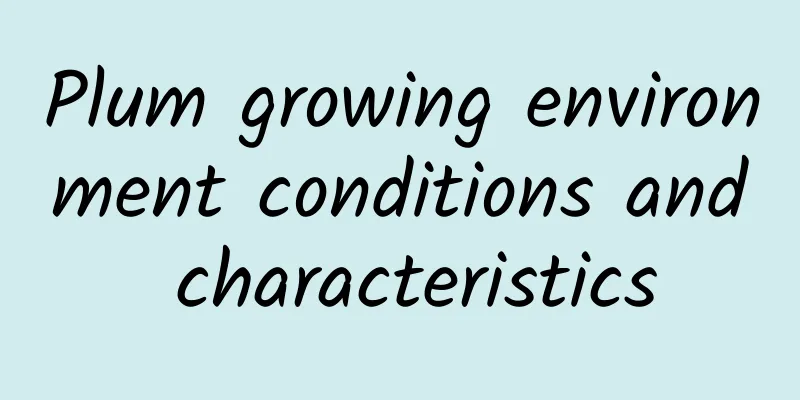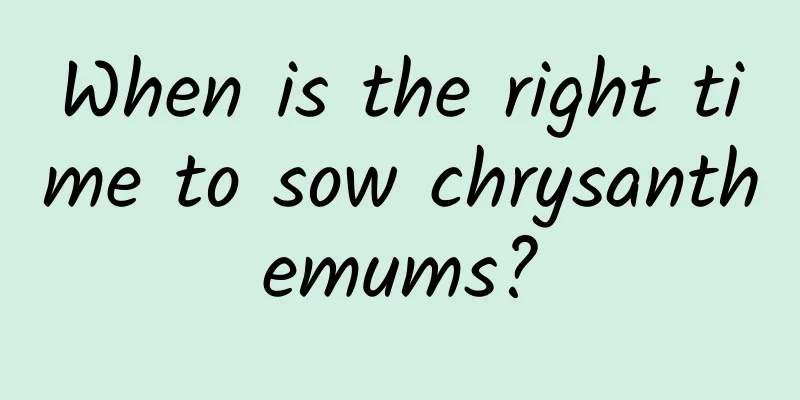How long is the growth cycle of ginger?

Introduction to Ginger GrowthGinger is not very demanding on the length of sunshine and is relatively shade-tolerant, so when planting it, you should build a shade shed or use intercropping to provide appropriate shade to avoid strong sunlight. 2. Ginger is native to tropical regions such as my country and Southeast Asia. It is currently grown in tropical Asia. The most famous one is the Weifeng ginger produced in Qingzhou, Shandong. Ginger growth cycleGinger prefers a warm and humid growing environment. It has weak cold resistance and can only grow in the frost-free period. If it encounters frost, the plant will wither and the rhizome will completely lose the ability to germinate. The growth cycle of ginger generally takes about 210 days, and it can be harvested after growing from May to November. It will sprout new buds from the ginger seeds, grow into seedlings, mature for harvest, and then go dormant. Ginger growth rateThe growth cycle of ginger is divided into four stages: germination period, seedling period, vigorous growth period, and rhizome dormancy period. The germination period takes 35-45 days. Usually, it takes about 50 days to germinate in its budding stage, and then it takes 60 to 70 days to grow leaves and side branches. After that, it enters the vigorous growth period until harvesting. Ginger growth cycle managementThere are many factors that affect the yield of ginger. Variety, planting pattern, management technology, etc. will lead to different yields. Under normal circumstances, the yield of one acre of ginger is about 3,000 to 6,000 kilograms. Ginger is afraid of direct sunlight and should not be planted continuously. It is best to choose sloping land and slightly shady land for cultivation, preferably sandy loam with deep, loose, fertile and good drainage. Temperature management : The best growth temperature for ginger is 18~26℃. It is a thermophilic vegetable. If the temperature is lower than 10℃ during the growth and development stage, it will affect flower bud differentiation and flowering and fruiting. If the temperature is higher than 28℃, it will cause the seedlings to grow tall and thin. Fertilization management : Ginger requires a large amount of fertilizer, so base fertilizer should be applied heavily. When the soil has sufficient organic matter, applying organic fertilizer and boron fertilizer can effectively improve the quality of soil organic matter and increase its yield and quality. |
<<: How long is the growth cycle of rhubarb?
>>: Can pepper water be used to water flowers?
Recommend
How often should the water for raising loaches be changed?
Loaches are delicious and popular in the market. ...
How to grow red magnolia
1. Appropriate lighting It is a strong sun-loving...
Difference between Gleditsia sinensis and Gleditsia sinensis
1. Leaf Difference The leaves of the soapberry th...
What is coriander?
What is coriander? Coriander is an annual dicotyl...
Maintenance methods of chicken shit vine
1. The habit of this plant First of all, it requi...
Characteristics of plum blossoms, pictures of plum blossoms
1. Features 1. Tree: Plum blossoms are small tree...
How often should I water my Green Diamond?
How often should I water my Green Diamond? The fr...
What to do after hyacinth is pinched by arrows
reason Low temperature Hyacinths generally need t...
What is the reason for the yellowing of the leaves of the water-grown spider plant? Why do the leaf tips of the water-grown spider plant wither?
1. What is the reason for the yellowing of leaves...
How long does it take for the purple pearl to adapt to the pot?
Succulent Purple Pearl acclimatization time If th...
Daphne koreana cutting time
1. Cutting time There are many options for the ti...
These 7 kinds of flowers are almost indestructible. The green ivy is only ranked second. The first one is...
Bachelor Tree Recommended reasons: Drought + sun ...
The difference between Xifu Begonia and Hubei Begonia
1. Differences in flowers: 1. When the crabapple ...
Six kinds of flowers that you should never grow at home
1. Hydrangea Although it is highly ornamental, pl...
When is the best time to prune roses? Which month is the best time to prune roses?
Rose pruning time Roses can be pruned during the ...









